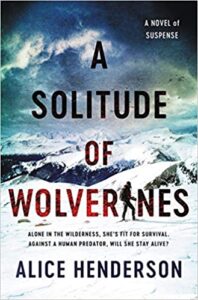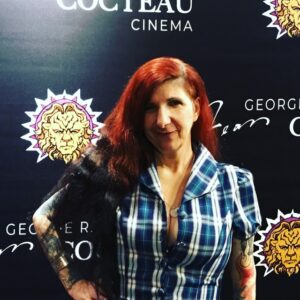Some books never get old. Or at least, the challenges some books face keep coming.
Ellen Hopkins is the author of several YA novels dealing with frightening issues and situations faced by teens today, Reviewer Michele Lee interviewed her in 2010 as part of Banned Books Week when she was disinvited from the Humble, Texas Teen Lit Festival after a middle school librarian shared concerns with some parents who went to the district superintendent. Although he had never read Hopkins’ books, and other librarians lobbied to keep her as a speaker, he still canceled her appearance. At the time of the interview, Ellen’s titles included Crank , Impulse, Glass, and Fallout.
Meanwhile in Indiana there is a movement by a quite vocal minority to remove books deemed offensive from school libraries. Books about racism. Activism. That contain LGBTQ content. Books like mine, that attempt to create dialogues and help kids make better choices. https://t.co/Ednxr0d80C
— Ellen Hopkins (@EllenHopkinsLit) July 29, 2021
It’s 2021, and at a school board meeting in Carmel, Indiana members of a “grassroots activist” called Purple for Parents attended a school board meeting where they read from books purportedly in the district’s school libraries supporting LGBTQ+ students and, in addition, explicit passages from, among other books, Crank by Ellen Hopkins. At the meeting a gun fell out of a man’s pocket and he had to be escorted out by police. The administration building has had to install metal detectors, and one of the faces of the group appeared on Fox News to throw the school librarians under the bus. As I watch commenters on Facebook tear down teachers and librarians, break into schools, and dox high school English teachers, I think my head is going to explode.
I will say there are also good people here who believe in our, and our kids’, freedom to read. But we’re not the ones getting national attention.
So I think, as much as things have changed since 2010, they haven’t changed for the better. It’s time to revisit this interview of Ellen Hopkins.
Michele Lee Interviews Ellen Hopkins
*********************************
ML: While some people joke that they wish their book was banned because it would be great for sales, what actually goes through your mind when someone labels your books inappropriate for their audience?
EH: Either that they haven’t actually read my books (but rather pulled content out of context), or that they have a seriously warped view of the contemporary teen experience. Unfortunately, few enough young adults live healthy, scrubbed lives. And what’ might be deemed “inappropriate” for them is necessary for many others.
ML: What tools have you used to approach a teen audience about such serious topics authentically, but also at a teen level rather than an adult level?
EH: I spend a lot of time talking to teens, both online and through primary outreach. They talk freely to me, so I truly understand many of their issues and concerns. It’s hugely important to walk where they live, rather than assuming what that place is.
ML: Do you think that teens are different from adults after all, or do we have a skewed idea of the average teen’s worldly knowledge?
EH: Everyone’s story is different. Personal. Many teens are forced to grow up much too quickly, but even those who are allowed an “average” childhood observe peers who have been touched by issues like addiction, depression, abuse, etc. Surely they know these things exist. Why not allow them some sort of perspective?
ML: You mentioned at the forefront of Crank that this book came, more or less, from your real life. Combined with the censorship issue, do you feel that there’s a segment of people who want to just hide all uncomfortable issues from public view?
EH: Of course. Or they just don’t want to look at these things themselves. And what this does is to make them feel somehow superior than, or at the very least apart from, those who are affected by them. Empathy is critical. But ignorance won’t lead you to understanding.
ML: How do you think this affects individuals coping with these issues and how we as a society handle them?
EH: They feel alone in their problems. I can’t tell you how many readers I’ve heard from who really believed that, until they saw themselves between the covers of a book. Mainstreaming them is huge, and they deserve to be considered “just a regular person,” albeit one going through difficult times.
ML: All the individuals in your books have both environmental issues and their own bad decisions to cite for their circumstances. What role does society and the people in supposed support positions play in addiction and depression, among other issues?
EH: Actually, they don’t all have environmental issues. Some do have support, but choose the wrong path anyway. There is a big chunk of choice involved in every bad decision. Learning by example is valid, but when you have the information to know that turning in a certain direction can lead you to a very wrong place, most of the “blame,” if you want to call it that, is on the individual.
ML: As you point out in the upcoming third book in Kristina’s life, Fallout, the damage of addiction is never isolated to just one person. How do we, as individuals, best help those struggling? And is there ever a time when we just have to let go, for our own sa
EH: There absolutely comes a time when you have to realize there is nothing more you can do to convince someone you love to turn their life around. You simply have to say, “Look. I love you, but I cannot stand by and watch you kill yourself slowly. When you want help I’m here. Until then, goodbye.” That may sound cruel, but self-preservation is paramount to helping someone else. If you’re a wreck, you’re useless to them, anyway. And if they refuse help, despite knowing the likely outcome, they will head down that path anyway.
ML: Likewise, how do we reach to each other as the friends, parents, children or loved ones of addicts? How do we support each other while we’re struggling to support the people struggling with the monster?
EH: First, we refuse to judge them. I can’t tell you how many times I’ve been called a bad mother because of my daughter’s actions. At some point, her choices were completely hers, as they are for everyone. We offer an ear. A shoulder to cry on. Resources, which we can help them find. And mostly, we prop them up when they fold.
ML: Where is the line in addiction (or with those struggling with mental illness) between choices the addict is responsible for, and choices they make as a victim themselves? How do the people on the sidelines resolve issues of forgiveness and personal responsibility in a situation where the person damaging them is also a struggling victim?
EH: Mental illness is much different than choosing a path that can lead to addiction. The former isn’t a choice. The information to make positive decisions is available. Too many people believe they can control their drug of choice. But the drug is almost always in control. Forgiveness is easy. Trust is much more difficult, and should never be given lightly. If an addict truly wants help, it is available, but it is a rocky path. The monster always calls, something people in support positions must always remember. Never give an addict money. Clothe them. Feed them. Make sure their children are safe. But enabling them is the quickest path to watching them fade away completely. This may seem harsh. But I’ve watched my own child relapse, after six years sober. I love her. Always. But I can’t help her die.
ML: This is the question where I usually ask about other releases the author has, or exciting projects they’re working on. While I’d definitely like to hear yours as well, do you think you could also list some great resources (other than your books) for those struggling with these issues?
EH: Addiction is rarely conquered alone. Many people find the way out through Alcoholics Anonymous (which, for some reason, most addicts find more helpful than Narcotics Anonymous). And for family members, Al Anon will not only help you through, they will offer local resources you might need.
My next young adult book is Perfect (about the drive for the unattainable goal of perfection), due out Fall 2011. And I’m currently writing my first adult novel-in-verse. Triangles (also 2011) is about midlife freakouts.






Follow Us!